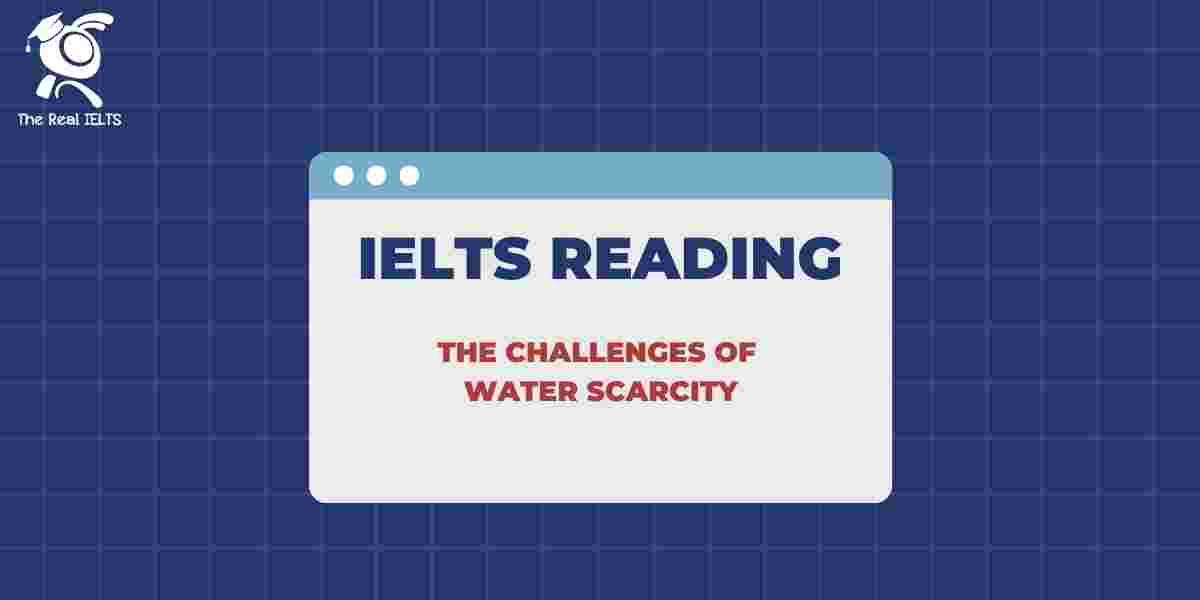Đề bài IELTS Writing Task 2 dạng Positive or Negative wearable technology
You should spend about 40 minutes on this task
The rise of fitness tracking and wearable technology. Do you think this is a positive or negative development?
Write at least 250 words.
Giải mẫu IELTS Writing
The proliferation of fitness tracking and wearable technology has sparked considerable debate regarding its impact on modern society. These devices, which range from smartwatches to fitness bands, have become ubiquitous, promising to enhance our health and well-being. I firmly believe that the rise of these technologies represents a positive development, albeit with some caveats.
Firstly, wearable technology significantly contributes to increased health awareness. Devices like Fitbit, Apple Watch, and Garmin have revolutionized how individuals monitor their physical activity, heart rate, sleep patterns, and other vital statistics. This real-time data enables users to make informed decisions about their health, encouraging them to adopt healthier lifestyles. For instance, sedentary individuals are often motivated to increase their daily step count, while those with irregular sleep patterns can identify and rectify underlying issues. By fostering a culture of self-awareness and proactive health management, wearable technology plays a pivotal role in preventive healthcare.
Moreover, fitness trackers and wearables provide an excellent platform for personal goal setting and achievement. The ability to set daily, weekly, or monthly fitness goals and track progress over time has proven to be a powerful motivator for many. Gamification elements, such as earning badges and competing with friends, further enhance user engagement and adherence to fitness routines. This can lead to long-term behavior changes and improved physical fitness, contributing to reduced healthcare costs and a healthier population overall.
However, it is essential to acknowledge some potential drawbacks associated with wearable technology. One concern is the accuracy and reliability of the data these devices provide. While advancements have been made, discrepancies in measurements can still occur, potentially leading to misinformation and undue anxiety. Furthermore, the constant tracking and data collection raise privacy issues, as sensitive health information could be exploited if not adequately protected.
Another downside is the potential for over-reliance on technology. While wearables can encourage healthy habits, they can also foster obsessive behavior and anxiety over achieving specific metrics. Individuals might focus excessively on numerical goals, such as step counts or calorie burns, rather than overall well-being and enjoyment of physical activity. It is crucial to strike a balance between utilizing technology for health benefits and maintaining a holistic approach to fitness and wellness.
In conclusion, the rise of fitness tracking and wearable technology is largely a positive development. These devices have the potential to transform personal health management, promoting greater awareness, motivation, and proactive care. However, users must be mindful of the limitations and potential downsides, ensuring they use these tools to complement, rather than dominate, their approach to health and fitness. By doing so, society can harness the full potential of wearable technology to foster a healthier and more informed populace.
Thống kê cấu trúc câu và cấu trúc ngữ pháp
Cấu trúc câu và cấu trúc ngữ pháp được sử dụng:
- Câu chủ động:
- “The proliferation of fitness tracking and wearable technology has sparked considerable debate regarding its impact on modern society.”
- “These devices, which range from smartwatches to fitness bands, have become ubiquitous, promising to enhance our health and well-being.”
- Câu bị động:
- “Individuals might focus excessively on numerical goals, such as step counts or calorie burns, rather than overall well-being and enjoyment of physical activity.”
- Mệnh đề quan hệ:
- “These devices, which range from smartwatches to fitness bands, have become ubiquitous, promising to enhance our health and well-being.”
- Mệnh đề phụ thuộc (thời gian, điều kiện, lý do):
- “While advancements have been made, discrepancies in measurements can still occur, potentially leading to misinformation and undue anxiety.”
- Câu phức:
- “For instance, sedentary individuals are often motivated to increase their daily step count, while those with irregular sleep patterns can identify and rectify underlying issues.”
- Câu ghép:
- “This real-time data enables users to make informed decisions about their health, encouraging them to adopt healthier lifestyles.”
- Câu so sánh:
- “Individuals might focus excessively on numerical goals, such as step counts or calorie burns, rather than overall well-being and enjoyment of physical activity.”
Từ kết nối các câu và đoạn:
- Liên từ phụ thuộc:
- Firstly
- Moreover
- However
- Another
- While
- Liên từ kết hợp:
- And
- Or
- Cụm từ chuyển tiếp:
- For instance
- In conclusion
- By fostering
- By doing so
Phân tích chi tiết từng đoạn văn:
Đoạn 1: Giới thiệu
- “The proliferation of fitness tracking and wearable technology has sparked considerable debate regarding its impact on modern society. These devices, which range from smartwatches to fitness bands, have become ubiquitous, promising to enhance our health and well-being. I firmly believe that the rise of these technologies represents a positive development, albeit with some caveats.”
- Cấu trúc câu: Câu chủ động, câu phức, mệnh đề quan hệ.
- Từ kết nối: Không có từ kết nối rõ ràng giữa các câu, tuy nhiên các câu được kết nối logic với nhau bằng các ý tưởng liên quan.
Đoạn 2: Lợi ích của công nghệ đeo
- “Firstly, wearable technology significantly contributes to increased health awareness. Devices like Fitbit, Apple Watch, and Garmin have revolutionized how individuals monitor their physical activity, heart rate, sleep patterns, and other vital statistics. This real-time data enables users to make informed decisions about their health, encouraging them to adopt healthier lifestyles. For instance, sedentary individuals are often motivated to increase their daily step count, while those with irregular sleep patterns can identify and rectify underlying issues. By fostering a culture of self-awareness and proactive health management, wearable technology plays a pivotal role in preventive healthcare.”
- Cấu trúc câu: Câu chủ động, câu phức, mệnh đề phụ thuộc, câu ghép.
- Từ kết nối: Firstly, For instance, By fostering.
Đoạn 3: Động lực cá nhân và sự thay đổi hành vi
- “Moreover, fitness trackers and wearables provide an excellent platform for personal goal setting and achievement. The ability to set daily, weekly, or monthly fitness goals and track progress over time has proven to be a powerful motivator for many. Gamification elements, such as earning badges and competing with friends, further enhance user engagement and adherence to fitness routines. This can lead to long-term behavior changes and improved physical fitness, contributing to reduced healthcare costs and a healthier population overall.”
- Cấu trúc câu: Câu chủ động, câu phức.
- Từ kết nối: Moreover, further.
Đoạn 4: Hạn chế và nhược điểm tiềm ẩn
- “However, it is essential to acknowledge some potential drawbacks associated with wearable technology. One concern is the accuracy and reliability of the data these devices provide. While advancements have been made, discrepancies in measurements can still occur, potentially leading to misinformation and undue anxiety. Furthermore, the constant tracking and data collection raise privacy issues, as sensitive health information could be exploited if not adequately protected.”
- Cấu trúc câu: Câu chủ động, câu bị động, mệnh đề phụ thuộc.
- Từ kết nối: However, One concern is, While, Furthermore.
Đoạn 5: Sự phụ thuộc quá mức vào công nghệ
- “Another downside is the potential for over-reliance on technology. While wearables can encourage healthy habits, they can also foster obsessive behavior and anxiety over achieving specific metrics. Individuals might focus excessively on numerical goals, such as step counts or calorie burns, rather than overall well-being and enjoyment of physical activity. It is crucial to strike a balance between utilizing technology for health benefits and maintaining a holistic approach to fitness and wellness.”
- Cấu trúc câu: Câu chủ động, câu phức.
- Từ kết nối: Another, While, rather than, It is crucial to.
Đoạn 6: Kết luận
- “In conclusion, the rise of fitness tracking and wearable technology is largely a positive development. These devices have the potential to transform personal health management, promoting greater awareness, motivation, and proactive care. However, users must be mindful of the limitations and potential downsides, ensuring they use these tools to complement, rather than dominate, their approach to health and fitness. By doing so, society can harness the full potential of wearable technology to foster a healthier and more informed populace.”
- Cấu trúc câu: Câu chủ động, câu phức.
- Từ kết nối: In conclusion, However, rather than, By doing so.
Các từ vựng tiếng Anh cần lưu ý trong bài viết
- Proliferation – Sự tăng nhanh
- Ubiquitous – Phổ biến khắp nơi
- Enhance – Nâng cao
- Well-being – Sự khỏe mạnh, hạnh phúc
- Vital statistics – Các chỉ số sức khỏe quan trọng
- Real-time – Thời gian thực
- Informed decisions – Quyết định có thông tin
- Sedentary – Ít vận động
- Identify – Nhận diện
- Rectify – Sửa chữa
- Preventive healthcare – Chăm sóc sức khỏe phòng ngừa
- Personal goal setting – Thiết lập mục tiêu cá nhân
- Achievement – Thành tựu
- Motivator – Động lực
- Gamification – Trò chơi hóa
- User engagement – Sự tham gia của người dùng
- Adherence – Sự tuân thủ
- Long-term behavior changes – Thay đổi hành vi lâu dài
- Reduced healthcare costs – Giảm chi phí chăm sóc sức khỏe
- Accuracy – Độ chính xác
- Reliability – Độ tin cậy
- Discrepancies – Sự khác biệt
- Measurements – Các phép đo
- Misinformation – Thông tin sai lệch
- Privacy issues – Vấn đề bảo mật
- Sensitive health information – Thông tin sức khỏe nhạy cảm
- Exploited – Bị lợi dụng
- Over-reliance – Sự phụ thuộc quá mức
- Obsessive behavior – Hành vi ám ảnh
- Numerical goals – Mục tiêu số lượng
- Holistic approach – Cách tiếp cận toàn diện
- Transform – Chuyển đổi
- Promoting – Khuyến khích
- Limitations – Hạn chế
- Potential downsides – Nhược điểm tiềm ẩn
- Harness – Tận dụng
- Informed populace – Dân số có thông tin
Đọc thêm các bài Luyện Thi IELTS khác trong link nhé.















